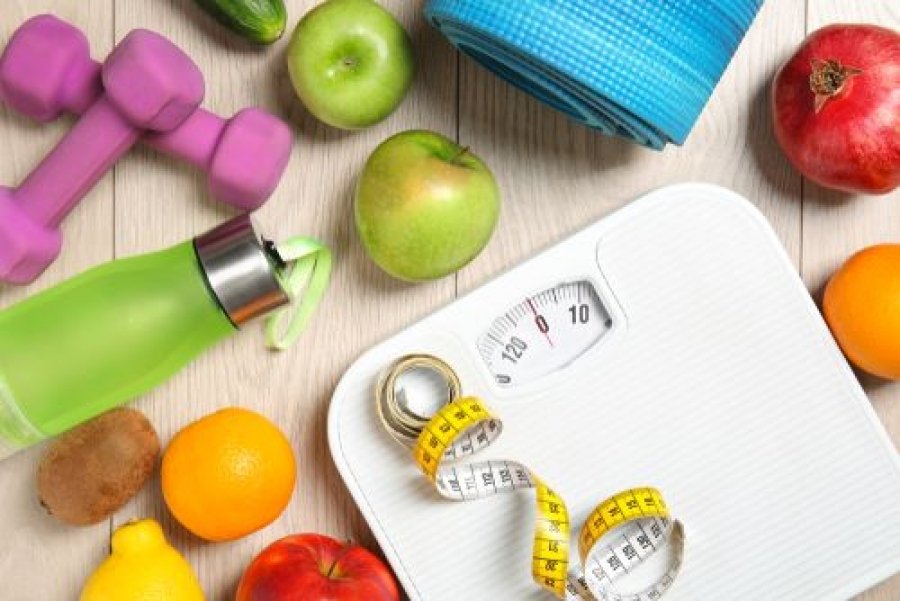Losing weight doesn’t mean you have to starve yourself. In fact, depriving yourself of food can lead to unhealthy eating habits and even weight gain. Instead, focus on smart strategies that help you lose weight while still enjoying a satisfying and nutritious diet. Here’s how to lose weight without starving yourself.

Focus on Nutrient-Dense Foods
Firstly, focus on nutrient-dense foods. These foods provide essential vitamins and minerals while being relatively low in calories. Opt for fruits, vegetables, lean proteins, and whole grains. These foods are filling and help you stay satisfied for longer. For instance, a bowl of vegetable soup or a salad with grilled chicken can be both filling and nutritious. By choosing nutrient-dense foods, you can lose weight without feeling deprived.
Eat Smaller, More Frequent Meals
Next, eat smaller, more frequent meals throughout the day. Instead of three large meals, try eating five to six smaller meals. This approach helps keep your metabolism active and prevents extreme hunger that can lead to overeating. Include a mix of protein, fiber, and healthy fats in each meal to keep you full and energized. For example, have a snack of Greek yogurt with berries between meals to maintain steady energy levels.
Stay Hydrated
Additionally, staying hydrated is crucial for weight loss. Sometimes, thirst is mistaken for hunger, leading to unnecessary snacking. Drinking plenty of water throughout the day helps you stay hydrated and can help control your appetite. Aim for at least 8 glasses of water daily. You can also incorporate herbal teas or flavored water to add variety.
Choose High-Fiber Foods
Including high-fiber foods in your diet can aid weight loss and keep you from feeling hungry. Fiber helps you feel full longer and supports healthy digestion. Foods like vegetables, fruits, beans, and whole grains are excellent sources of fiber. For example, adding a serving of beans to your salad or having an apple as a snack can help you stay satisfied.
Include Lean Proteins
Lean proteins are essential for weight loss because they help build and repair muscle while keeping you full. Incorporate sources like chicken breast, fish, tofu, and legumes into your meals. Protein also helps regulate your blood sugar levels, which can reduce cravings. Try having a grilled chicken breast or a serving of lentils with your meals for a protein boost.
Avoid Empty Calories
Avoid empty calories from sugary drinks and processed foods. These foods provide little nutritional value and can lead to weight gain. Instead, focus on whole, unprocessed foods that provide essential nutrients. For example, choose water or herbal tea over sugary sodas, and opt for whole fruits rather than fruit juices.
Practice Mindful Eating
Practicing mindful eating can help you enjoy your food and prevent overeating. Pay attention to your hunger and fullness cues and eat slowly to savor each bite. Avoid distractions like watching TV or using your phone while eating. By being present during your meals, you can better recognize when you’re full and avoid eating out of boredom or stress.
Incorporate Physical Activity
Regular physical activity complements your weight loss efforts and helps you maintain a healthy weight. Aim for at least 150 minutes of moderate aerobic exercise or 75 minutes of vigorous activity each week. Incorporate activities you enjoy, such as walking, swimming, or dancing, to stay motivated. Exercise also boosts your metabolism and helps manage stress, which can support healthy eating habits.
Get Enough Sleep
Lastly, don’t underestimate the importance of sleep in weight loss. Lack of sleep can affect your appetite and increase cravings for unhealthy foods. Aim for 7-9 hours of quality sleep each night to support your weight loss goals. Establish a consistent sleep schedule and create a relaxing bedtime routine to improve your sleep quality.
Conclusion
In conclusion, losing weight without starving yourself involves focusing on nutrient-dense foods, eating smaller, more frequent meals, staying hydrated, and including high-fiber and lean protein foods. Avoid empty calories, practice mindful eating, incorporate physical activity, and ensure you get enough sleep. By following these strategies, you can achieve your weight loss goals while maintaining a balanced and satisfying diet. Remember, healthy weight loss is about making sustainable changes that support your overall well-being.




